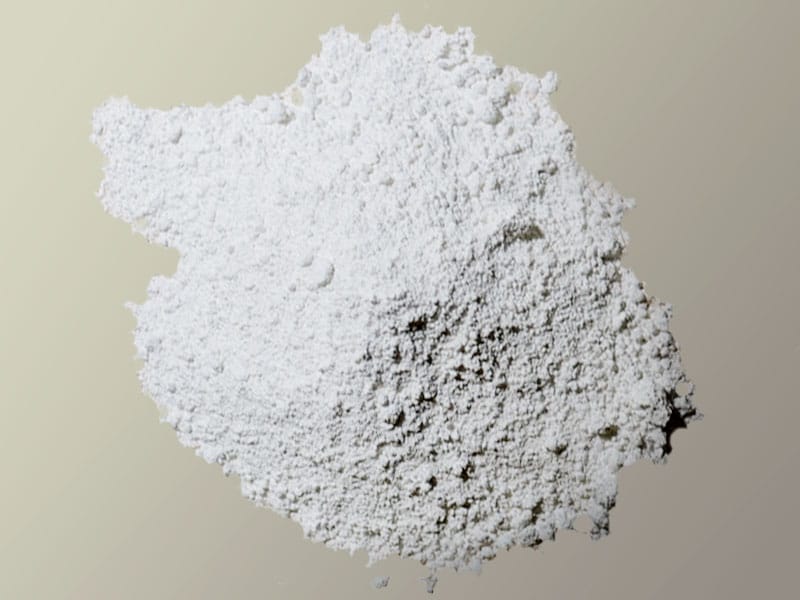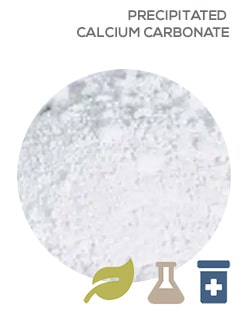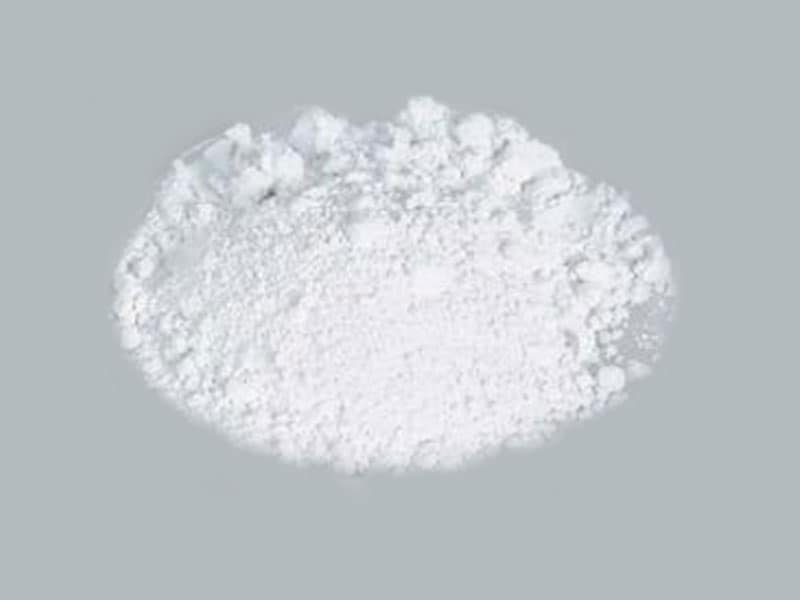Precipitated Calcium Carbonate

What is precipitated calcium carbonate?
Precipitated calcium carbonate (PCC) is a substance formed from natural calcium carbonate (GCC). It is a material with a smaller granulometry than GCC and with more uniform particles, more chemically pure and with a greater specific surface area. Its production requires applying special controls regarding the precipitation reaction and subsequent treatments.

Available variants
of precipitated calcium carbonate
TIOPAC – S
High quality synthetic material available without surface treatment that provides very good properties of whiteness, opacity and the possibility of reducing the consumption of white pigments (mainly Titanium Dioxide).
TIOPAC- ST
Material obtained from the uncoated original and given a special surface treatment process to give it hydrophobic properties, making the material suitable for applications in the manufacture of plastic products.
PCC is supplied in different granulometries and packaging forms, to satisfy consumer requirements.
What is Precipitated Calcium Carbonate used for?
One of the differential advantages of Precipitated Calcium Carbonate is the possibility of having different crystalline forms that end up having physical properties adapted to each of the specific applications. Due to its high whiteness and opacity, it is a material that can be used very successfully in the manufacture of paints and paper.
PCC can be used in other applications, although it is not the most common material used in the sectors. For example, it is used in the pharmaceutical and food industries due to its chemical purity.
Coatings and paints
Precipitated Calcium Carbonate is highly recommended as a pigment with a high gloss and coating in the manufacture of paints.
Adhesives, resins and sealants
PCC is used in the manufacture of adhesives and sealants due to its rheological behaviour.
Paper
The high purity, size and granulometry of the PCC Calcium Carbonate allow for high levels of opacity and whiteness in its manufacture, characteristics that are very well suited to its application in the manufacture of paper.
Plastic compounds
On the other hand, it is also used as a filler in the manufacture of plastics to help provide greater resistance to impacts.
Food
PCC is used in food as a food additive, with the code E170, to adjust the level of calcium in food and as an anti-caking agent. It is also used as a filler or bulking agent in the manufacture of foods, including baked goods, candies, cereals, and beverages. Precipitated calcium carbonate is safe for human consumption and is considered a natural ingredient, making it popular in the food industry.
Cosmetic and medical
Precipitated calcium carbonate is used in the cosmetic and pharmaceutical industries as a bulking agent and thickener in the manufacture of creams, lotions, toothpastes and other similar products. It is also used as a mild abrasive in some dental products and skin scrubs. Additionally, PCC is sometimes used as an antacid agent in the pharmaceutical industry to treat heartburn and indigestion. In summary, precipitated calcium carbonate is a versatile additive that is commonly used in the cosmetic and pharmaceutical industries to improve the texture, performance, and efficacy of products.
Supplies
PCC can be supplied in different particle sizes and levels of whiteness in the two available variants.
For each of the different applications a size is recommended.
It can be supplied in 25 kg bags (on 1,000 kg pallets) or 1,000 kg big bags.

To request a quote about calcium carbonate, PCC, please contact us.
OFFICE
Casp, 116, Ppal, 4ª
08013 BARCELONA – Spain
